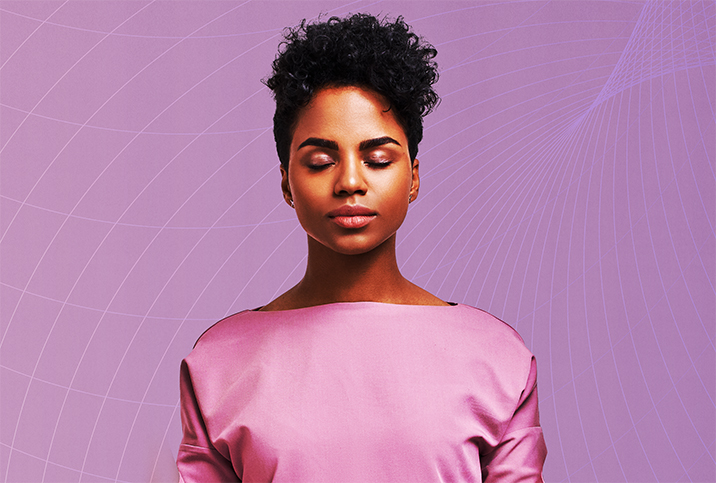The Data of Our Lives: Tech's Never-Ending Quest to Track Everything
Smart devices are electronic gadgets that connect to other devices or networks via wireless protocols like Wi-Fi or Bluetooth, for the purpose of data exchange, allowing them to operate interactively and autonomously.
Your smartphone is probably the best example of a smart device, but you may have a smartwatch on your wrist, you may check your weight on a smart scale, wear a smart sleeping mask at night and much more. And in your home, there might be smart devices controlling your lights and heat, smart speakers attached to your TV—even your laptop could be considered a smart device.
Is it getting out of control? Are we getting an overload of data that could eventually overwhelm us?
These questions are up for debate, but perhaps a more pressing issue is whether these devices are all safe, especially the ones we wear on our bodies.
How technology impacts mental health
Much of our mental health is predicated on a healthy, balanced lifestyle. One of the main things that keeps us alert and present to engage in activities to support a healthy lifestyle is getting enough sleep.
"It's unclear as of yet if there is a physical danger to the human body from wearing smart devices," said Robert Pagano, a certified sleep science coach and co-founder at mattress review and sleep guide company Sleepline. "There are, however, possible risks associated with how we interact with computers and other digital technologies while we sleep. Extended use of laptops and tablets before bedtime can prevent the brain from transitioning into a deep sleep and should therefore be avoided."
Pagano said the blue light emitted by electronic screens has been shown to suppress melatonin production, which may lead to insomnia or disrupted REM patterns, causing early waking.
'There is significant mental danger from being constantly connected digitally to our devices.'
"It's been found that being constantly connected digitally to a device causes a lack of sleep, an increase in anxiety and a high distraction level," Pagano said. "We all know it's important for health and well-being to make time for leisure time, but few of us do it. There is significant mental danger from being constantly connected digitally to our devices. For one thing, you might spend less time engaged in the outside world."
However, many companies are creating apps specifically for tracking and improving sleep, which might seem contradictory, but there is a way to do it without encouraging the overuse of technology. Marc Werner, founder and CEO at Nature's Sleep, says customers can achieve that with one of the company's mattresses, which works with an accompanying app, essentially making it a smart bed.
"Yes, it's a smart device for your bed with an app, however, the app is focused on the basics, because at some point it's overkill to track everything," Werner said. "Plus, it becomes a distraction to your sleep environment when your phone should really be turned off."
Are smart devices really listening all the time?
Even those of us not wearing tinfoil hats have genuine concerns that our smart devices are listening even when not prompted. Some find they receive advertisements for things they merely talked about, and some have smart home devices go off when no one says anything to prompt them.
"People should be worried about smart devices tracking and listening to them, but only if they're not taking steps to protect themselves," Pagano explained. "Information is constantly being collected from smart devices by the many companies and individuals who own and control these devices. So, by using a device, you're voluntarily handing over an immense amount of personal data."
Pagano said it's important to remember what might seem like a small or incidental piece of information could turn out to be invaluable clues to your lifestyle habits to someone listening in.
Big tech companies are known to use whatever data is collected on their smart devices to their advantage, even if their end goal is altruistic.
"It's not just people and organizations," Pagano added. "Hackers are constantly looking for ways they can breach systems so they can ultimately hold your data ransom."
Of course, it's not just smart homes that carry the risk of information hacking. If you have apps for booking medical appointments or a health insurance company app, personal medical information exists on your smart devices, which makes them a target.
"When it comes to smart devices, medical data has become a very hot topic," said Dan Prince, CEO and founder at custom healthcare software company Illumisoft. "Sharing health data is going to become a necessity in the future, but for successful implementation, it will require the patient to be in complete control of their data as well as who can access it."
Big tech companies are known to use whatever data is collected on their smart devices to their advantage, even if their end goal is altruistic, such as with health apps. Prince says the reality is they're still big corporations and shouldn't really be trusted with that kind of information.
The future of smart devices
It doesn't seem like smart devices are going anywhere. If anything, their intelligence and production are being ramped up and that makes them more attractive to consumers.
But there's still the question of whether or not they do more harm than good.
"As it stands now, this is difficult to answer," Pagano said. "Smart devices can be seen as a long-term solution for convenience and safety, but they also have major drawbacks, mainly in the area of privacy."
Pagano noted one advantage of smart homes is that they have the potential to lower energy consumption by optimizing appliance use times or even turning lights off when nobody is there to reduce wasted resources.
"And these aren't just eco-friendly benefits," Pagano explained. "They can also help you save money since you'll see your utility bill come down thanks to all the clever technology at work behind the scenes. But not everyone's convinced it'll last long enough without getting too intrusive or compromising our already hotly debated data privacy issues."


















